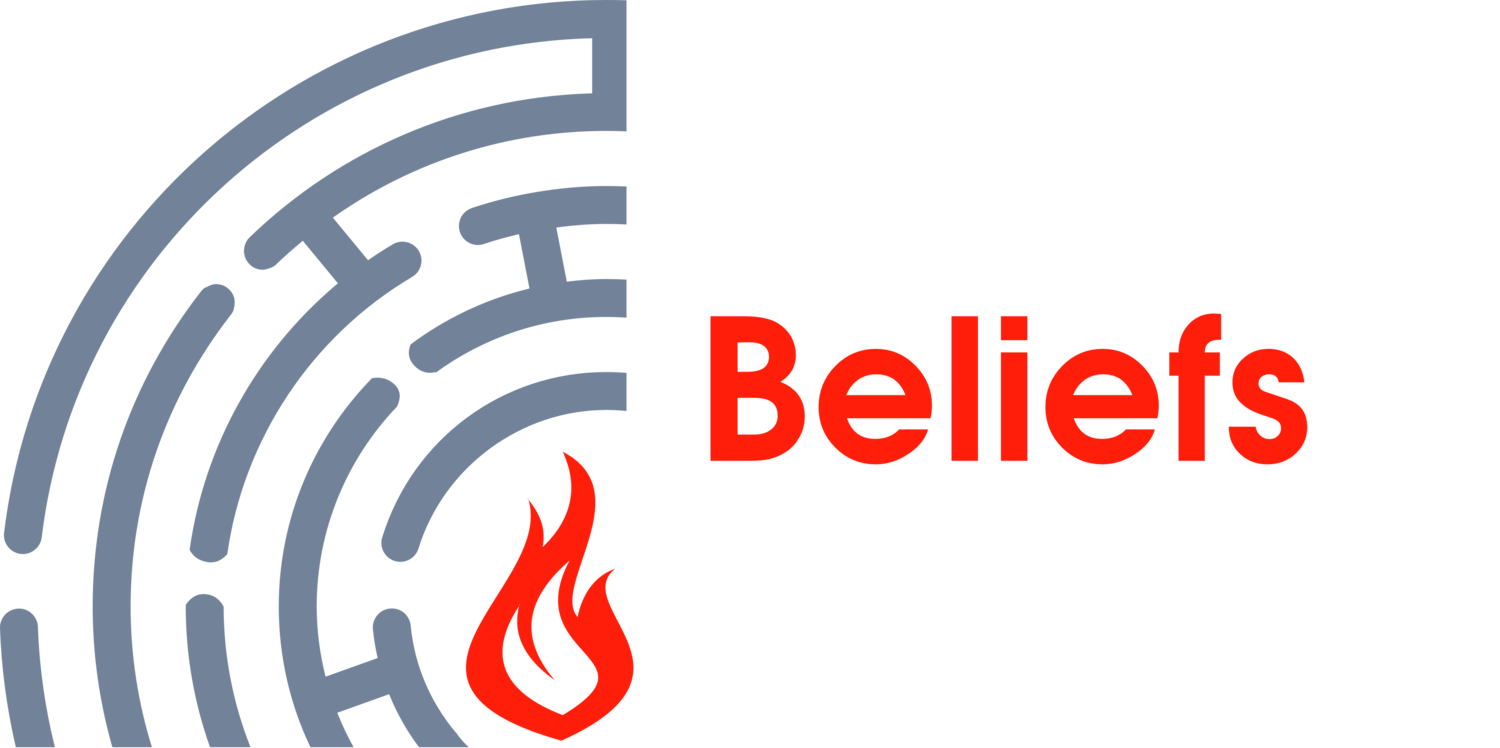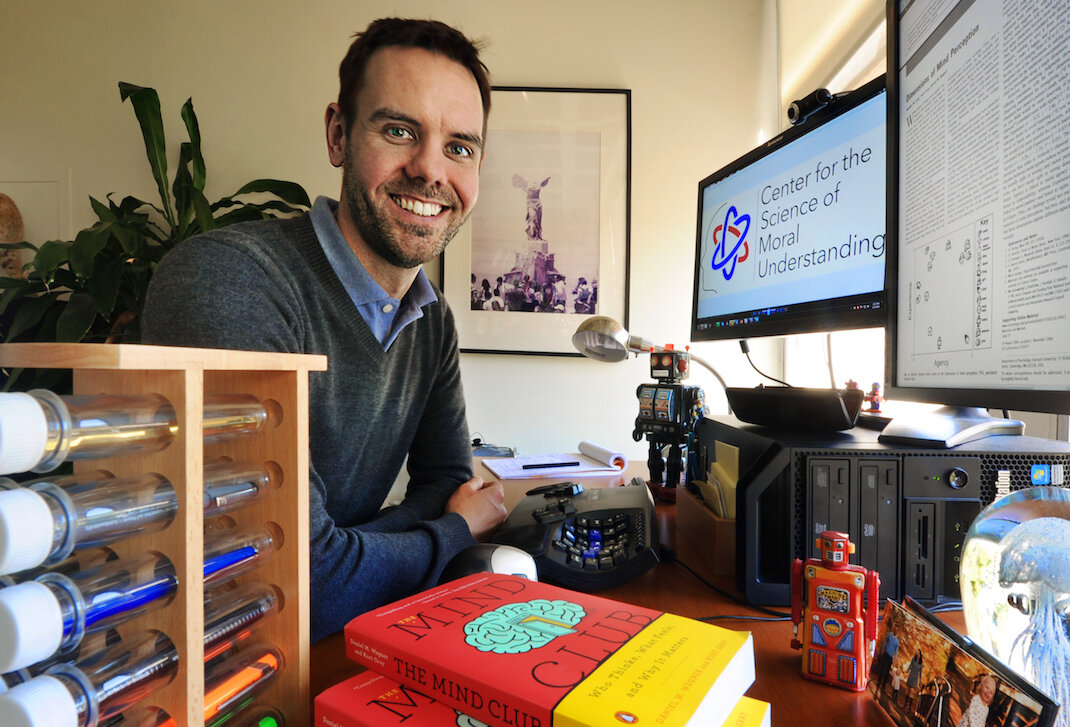
-
Morality
The cognitive and ideological basis of moral judgment, and how they create political divides
Learn more about morality
Morality
People obviously disagree about questions of right and wrong, from the permissibility of guns and euthanasia, to immigration and homosexuality. What is less obvious is how exactly our minds make moral judgment. Some argue that moral disagreement arises because different people—like liberals and conservatives—have different moral minds. But the lab’s work reveals that we all have the same moral mind, one grounded in perceptions of harm. Moral disagreement arises when people disagree about who or what society should protect from harm, and how we should protect them. The lab’s work has shaped the field of moral psychology by revealing the importance and flexibility of harm, and through exploring the connection between morality and mind perception, identity, and religion.
-
Mind Perception
How people make sense of other minds, including humans, animals, machines, and God
Learn more about mind perception
Mind Perception
It is clear that you have a mind, but what about a cow or a robot? Can they think and feel like you do? Questions about who or what has a mind have spawned centuries of philosophical discussion, which highlights a central issue, called the “problem of other minds.” Although each of us are intimately familiar with our own thoughts and feelings, we can never directly experience other minds, which means that we must merely perceive them. Our research on mind perception reveals that people often disagree about who or what has a mind. For example, pet owners often believe that their dog or cat has a rich mental life, whereas neighbors might believe that the same animal is a mindless furry robot. The lab explores both the basic processes of mind perception, and how we perceive cryptic minds including animals, machines, and the dead. Mind perception matters because our moral judgments hinge on who we see as capable of thoughts and feelings. Mind perception also shapes how we treat different groups of people, including military veterans and medical professionals.
-
Religion
The roots of religious beliefs and how understandings of God connect to culture and cognition
Learn more about religion
Religion
Religion has been central to the evolution of modern society and remains central in the lives of many people. Religious belief typically focuses on a God (or gods) with a unique mind and other distinctive characteristics. For example, the Christian God is seen as omnipotent, benevolent, and omniscient, but also as often possessing a humanlike appearance. The lab studies how people understand the mind of God, and what this means for human morality and social behavior. We also investigate how culture and religion shape each other, such as how religion has been impacted by the rise of war, and how cultural trends (e.g., the gradual relaxing of social norms in the West) have changed how people view God. We have revealed the face of God in America, and are exploring the roles of religion and science in how people explain everyday events.
-
Artificial Intelligence
How the human mind makes sense of emerging technology, especially autonomous machines
Learn more about artificial intelligence
Artificial Intelligence
The rise of artificial intelligence is transforming our society, from how we work to how we understand morality. Although modern AI is technologically impressive, advanced machines can clash with the expectations of the human mind. For example, the lab has long studied how and why robots are unsettling when they look too human, a phenomenon called the “uncanny valley.” Lab research examines how the threat of automation shapes human social relations, and how to leverage understandings about social cognition to build “socially invisible” robot navigation. Questions of morality loom large as AI becomes more integrated into society. Lab research reveals how people want machines to act (or not act) in situations with moral consequences, and how people to respond to employment discrimination from AI. We have also revealed how autonomous vehicles should be programmed when lives hang in the balance.
-
New Methods
Developing and leveraging novel techniques for studying enduring psychological questions
Learn more about new methods
New Methods
The toolbox of psychological science is ever-expanding, allowing us to ask new questions and explore old questions more deeply. In addition to using the classic techniques of social psychology (surveys and behavioral experiments), lab research leverages new methods. Our work on group dynamics has used agent-based modeling (ABMs) to explore the most fundamental roots of “us and them.” We have also published a guide for agent-based modeling for the field, and used ABMs to explore how best to manage teams after successes and failures. The lab has also used reverse correlation to explore religious cognition, used big data analyses to explore cultural changes and systemic discrimination, used network analyses to study social activism, and used latent-semantic analyses to reveal the cognitive processes underlying creativity. Of course, even the best methods are blind without theory, so the lab has developed a new technique for rigorously charting out theory: theory mapping.
-
Miscellaneous
Other lab work, from creativity and immortality to fashion, meta-science, and more
Learn more about our other work
Miscellaneous
What do ghosts and fashion have in common? They are both topics explored by the lab. Science is a method that can be applied to almost any domain, and the lab has investigated the psychological roots of diverse human experiences, including the cognitive basis of creativity, how fashion trends spread, and how people cope with functional intimacy. We have a set of studies examining people’s perceptions of death and immorality, which reveal how dying is unexpectedly positive, when we are likely to perceive good and evil ghosts, and how we should die to make sure we live on in the minds of others. What unifies all the lab’s work is that it is “interesting” (at least to us)—reflecting important human experiences.
The Deepest Beliefs Lab is led by Kurt Gray
Weary Foundation Endowed Chair in the Social Psychology of Polarization and Misinformation at the Ohio State University and Director of the Center for the Science of Moral Understanding.

